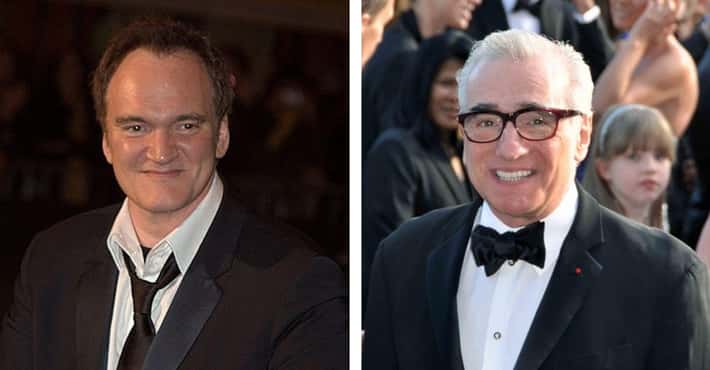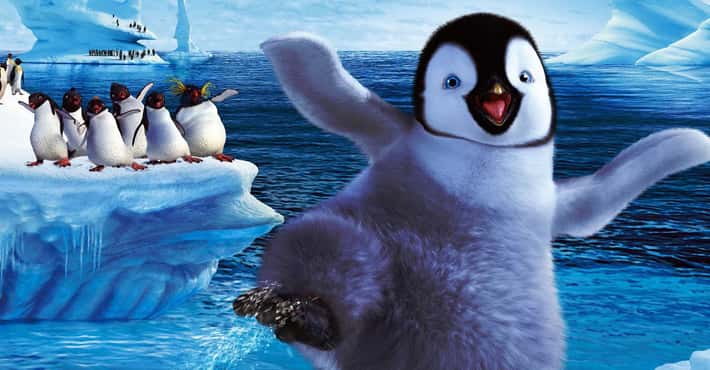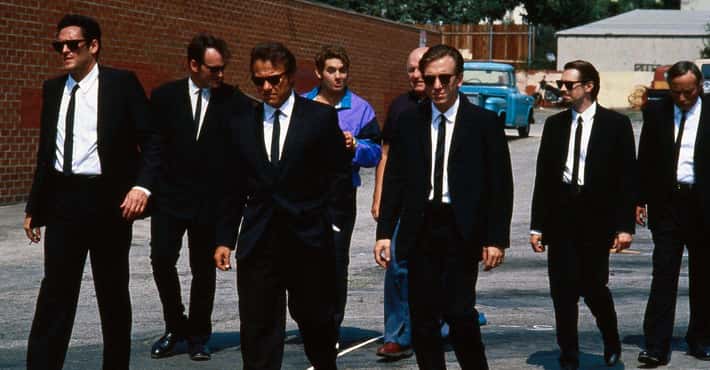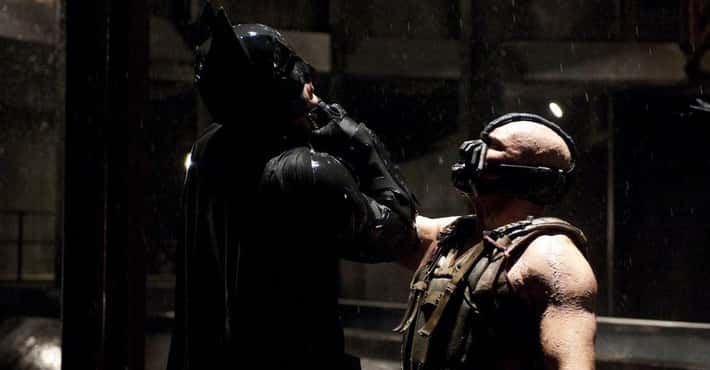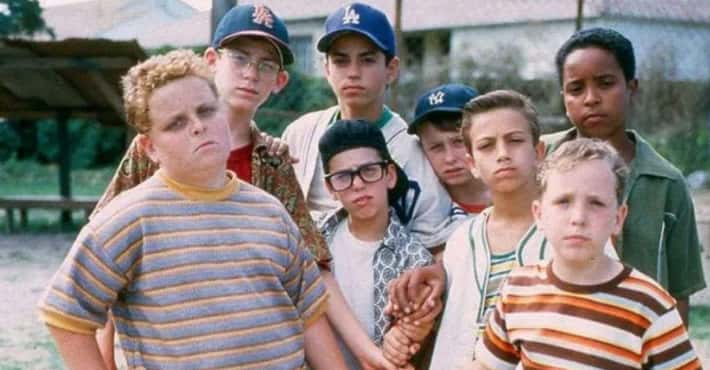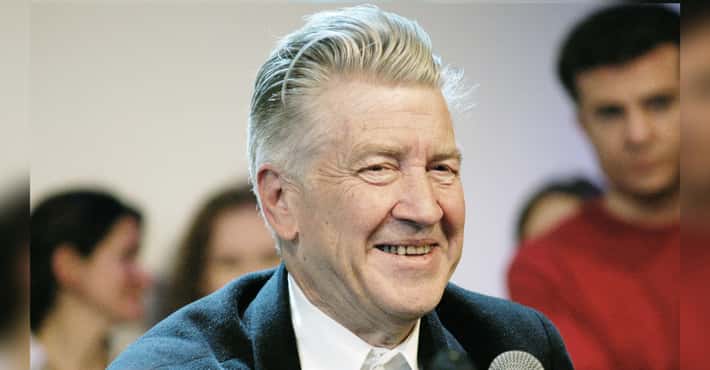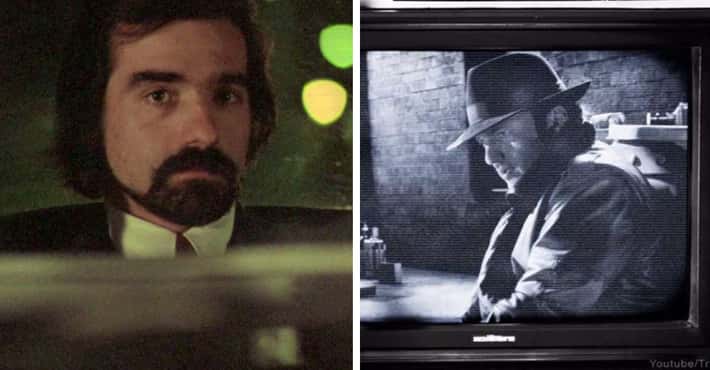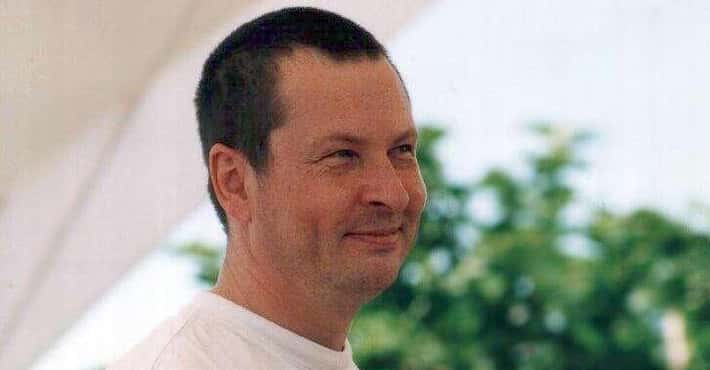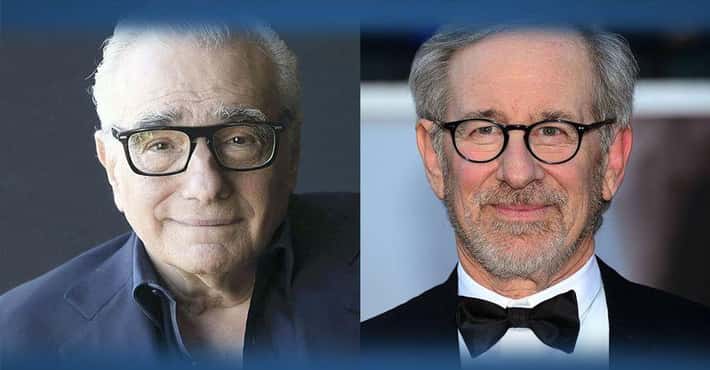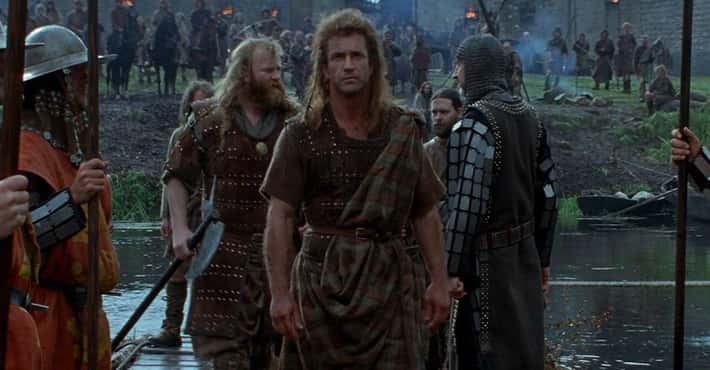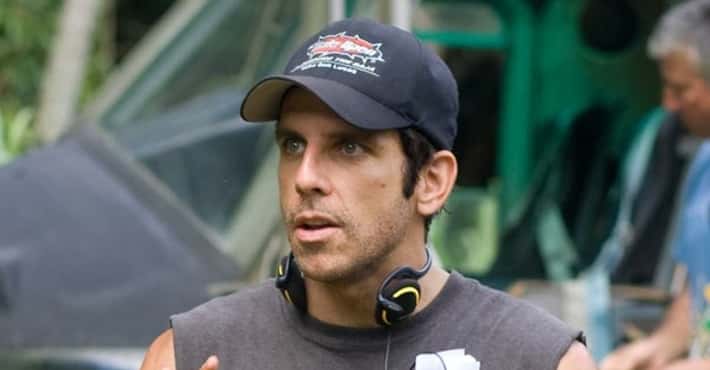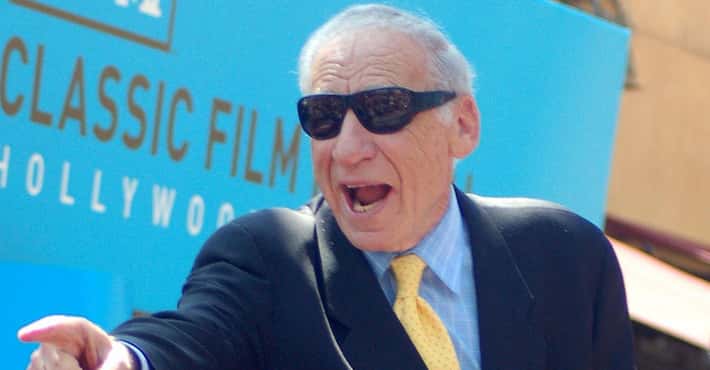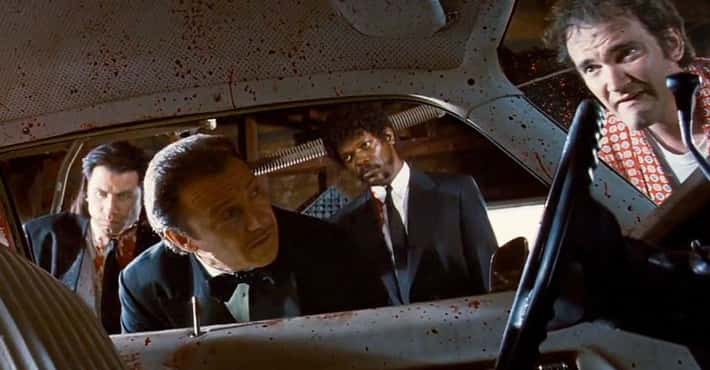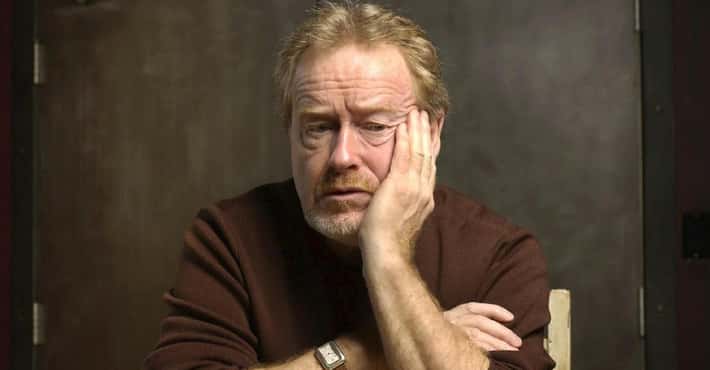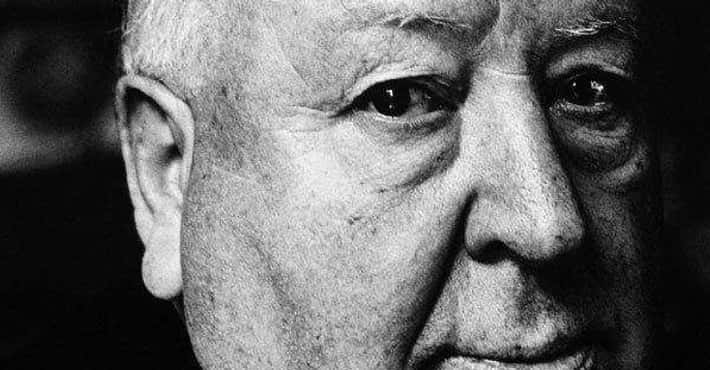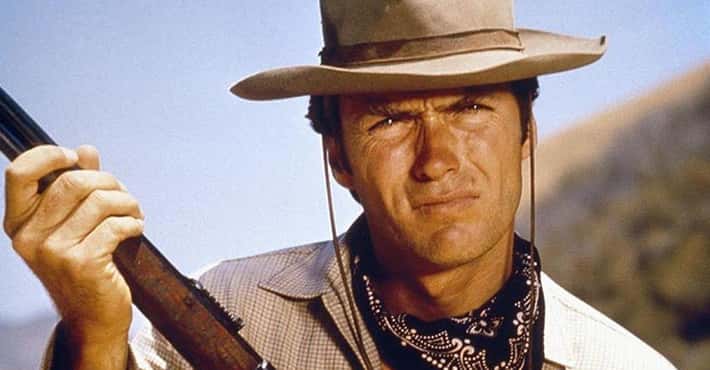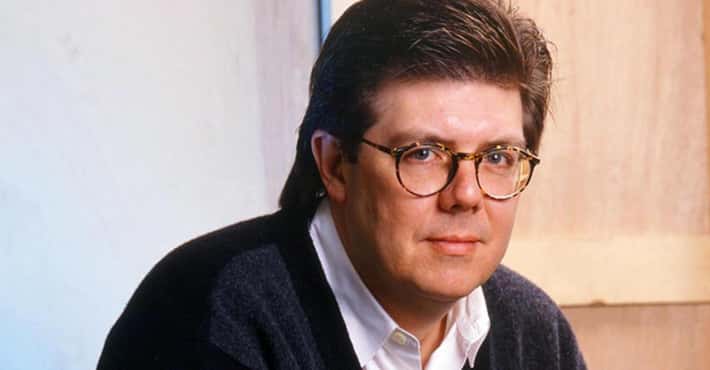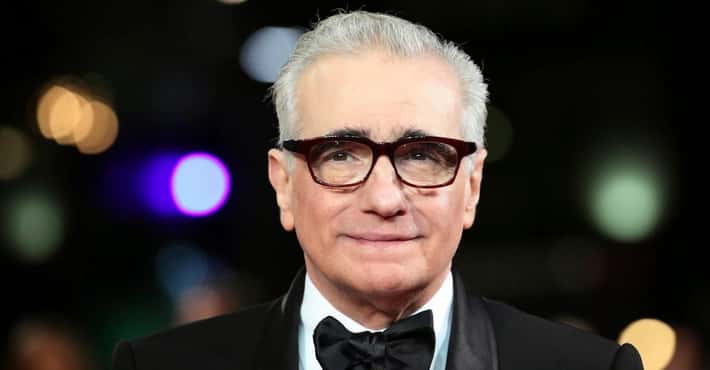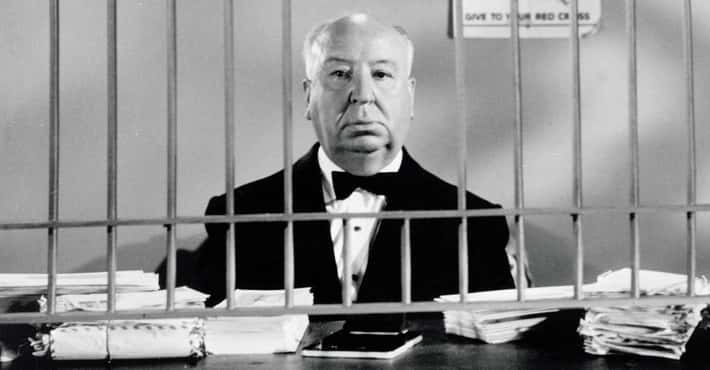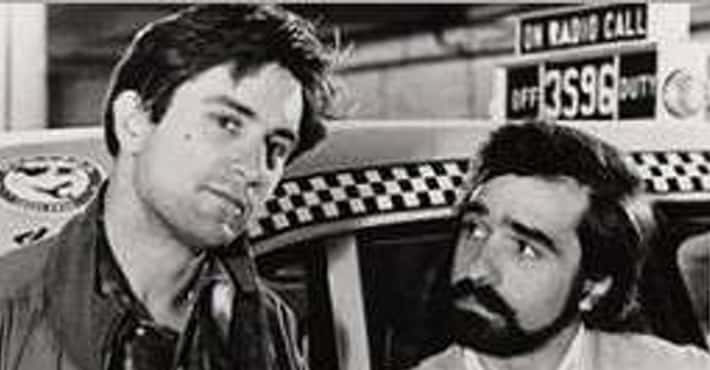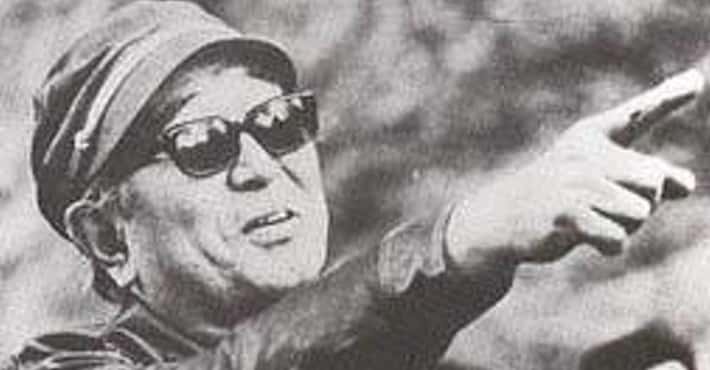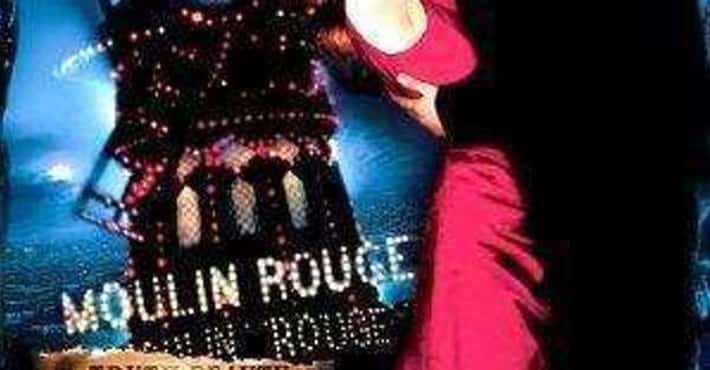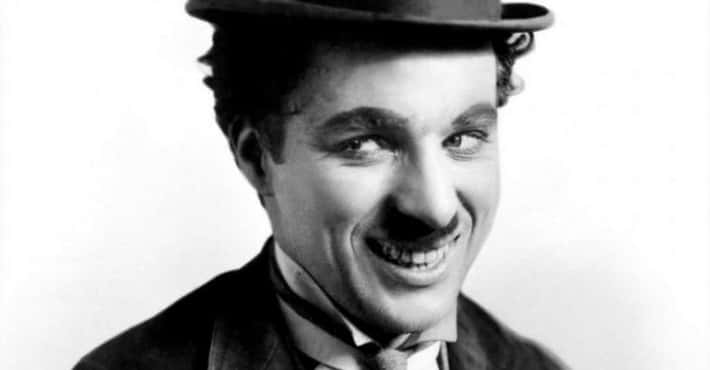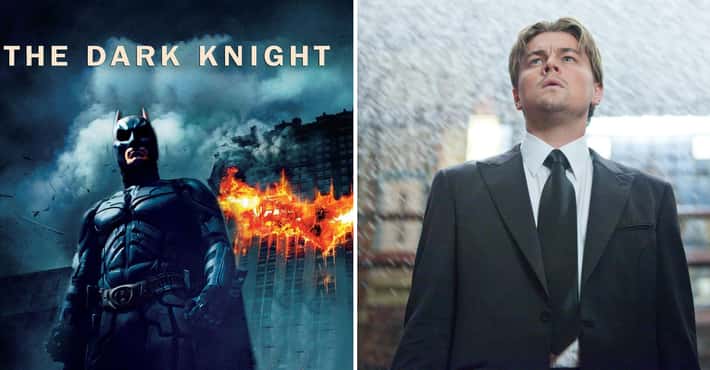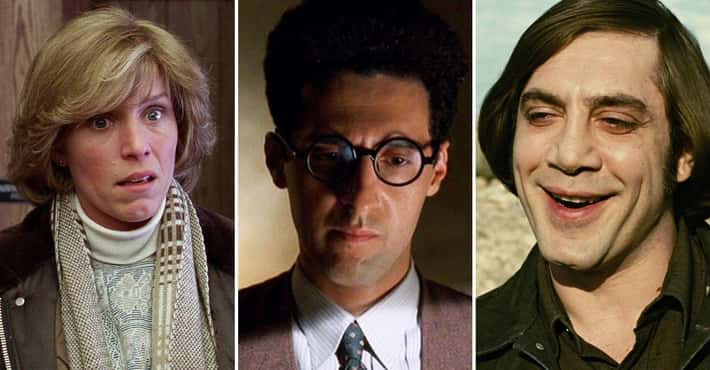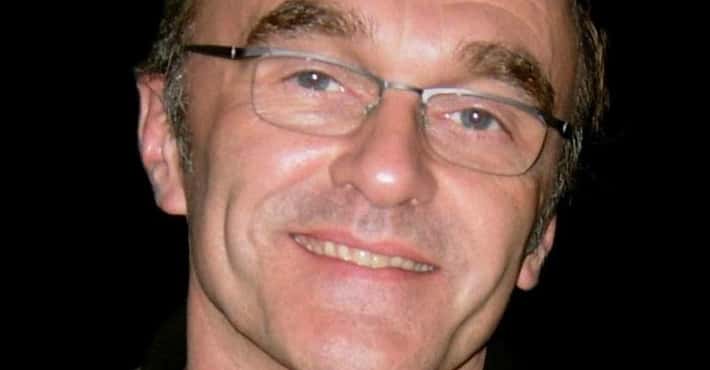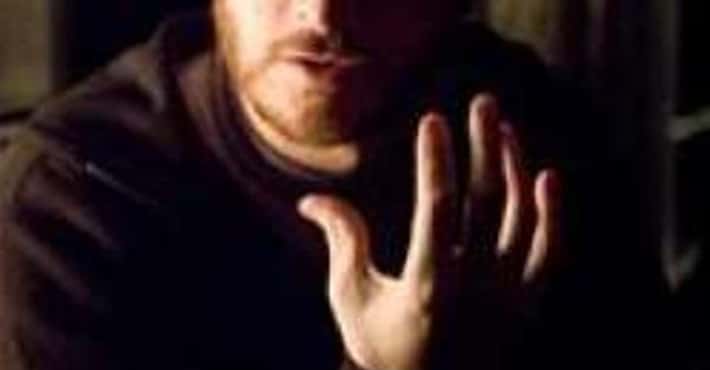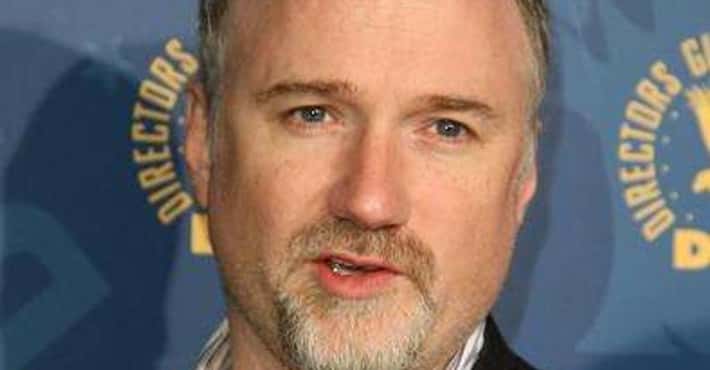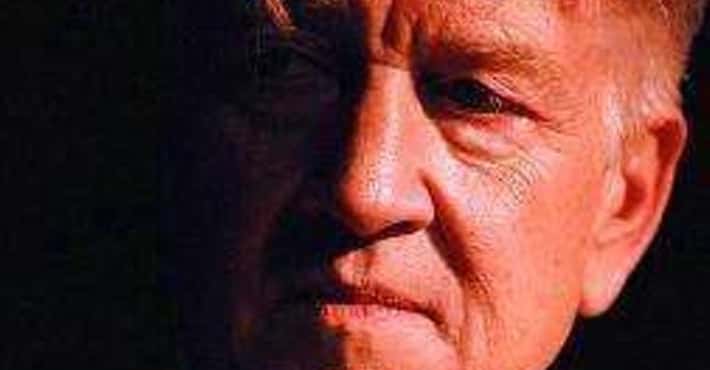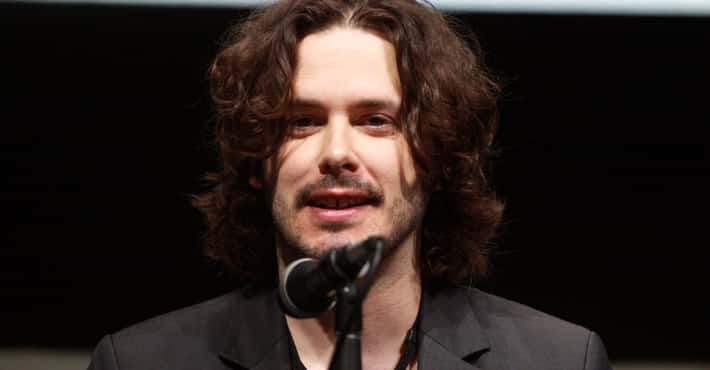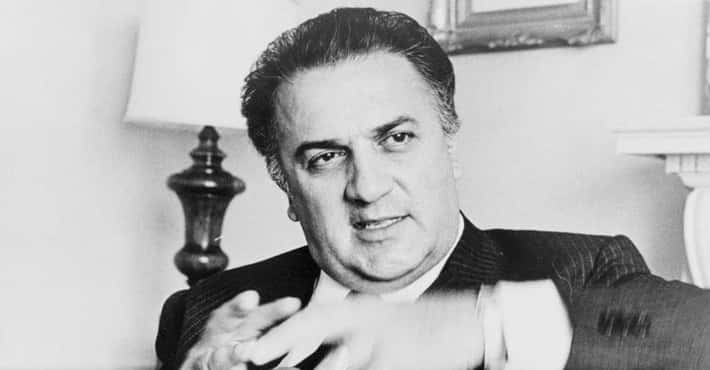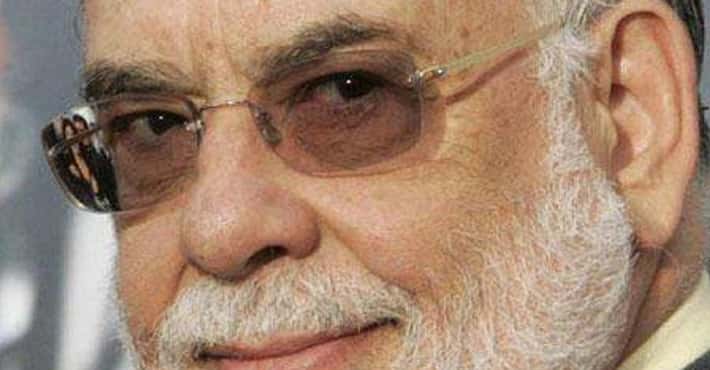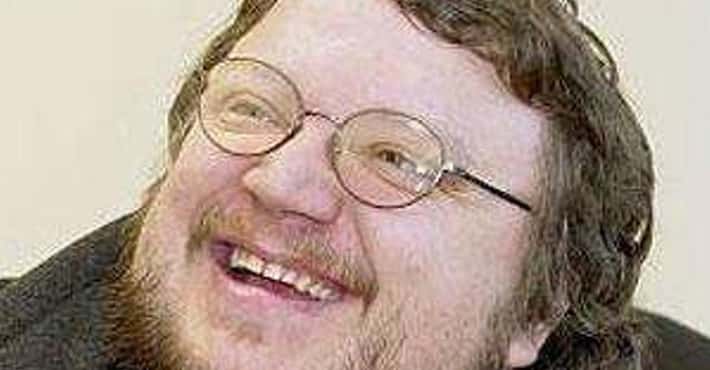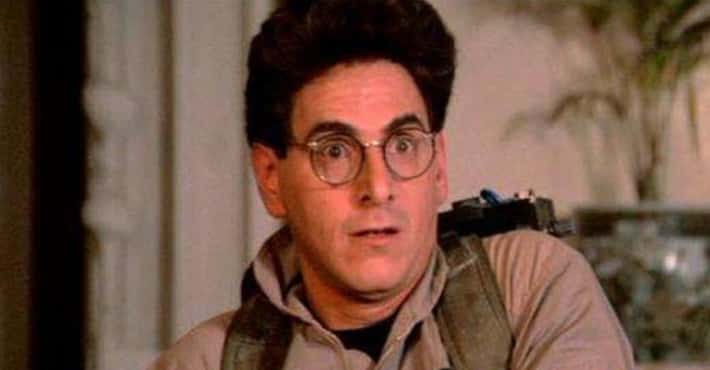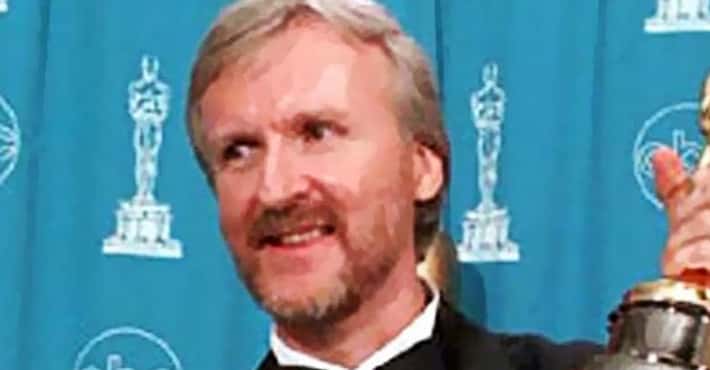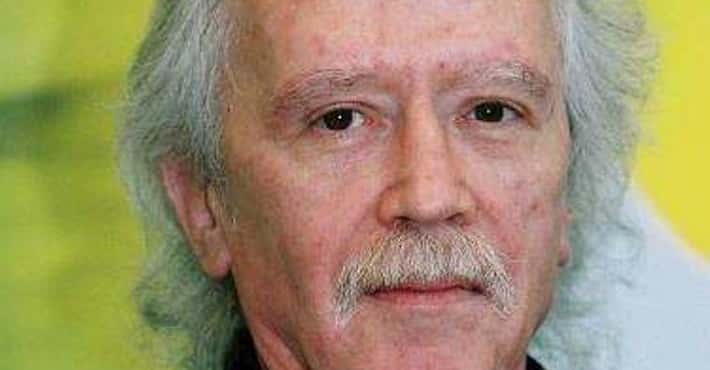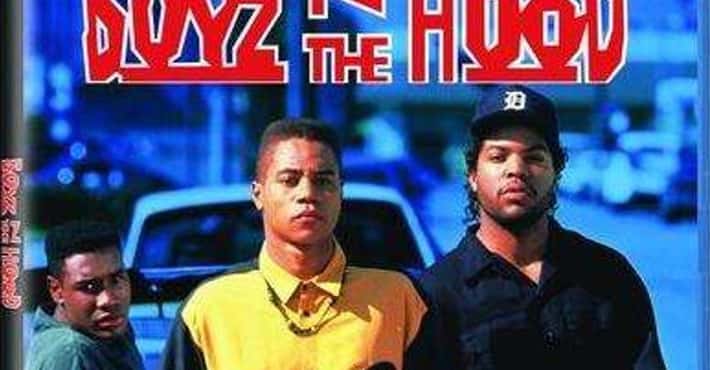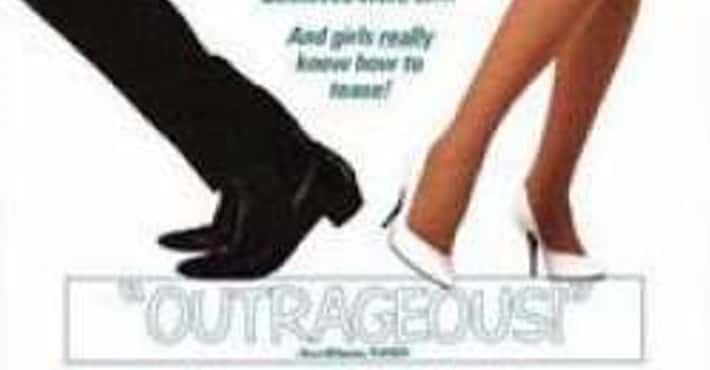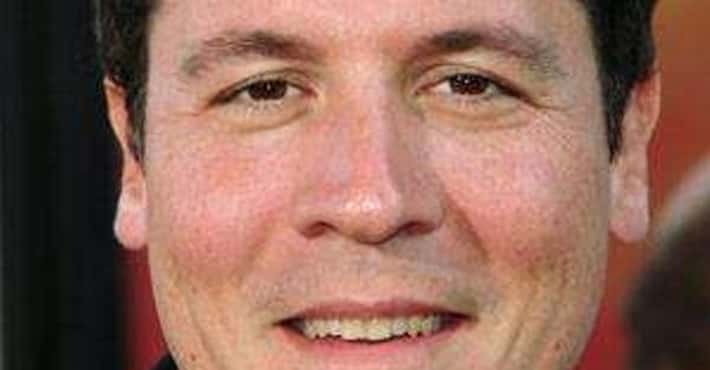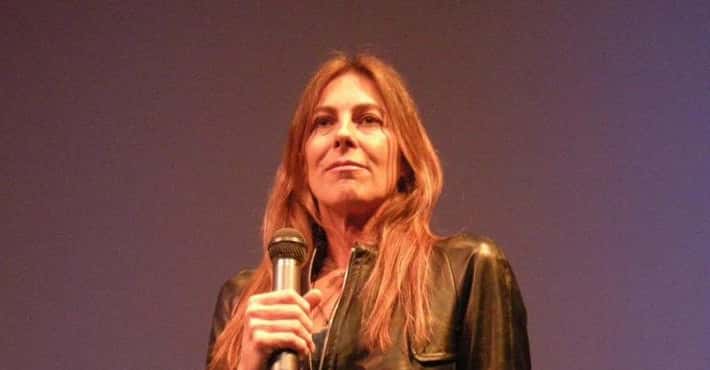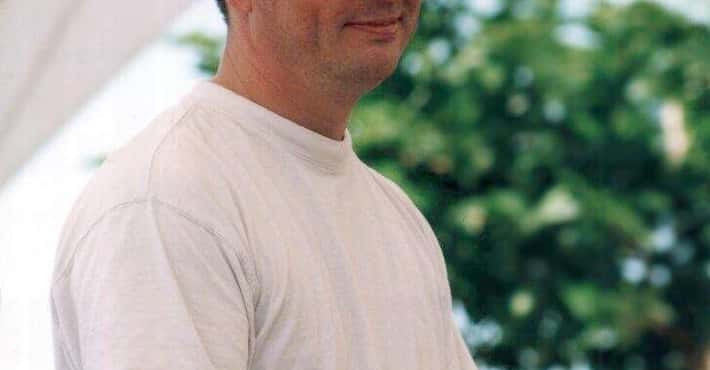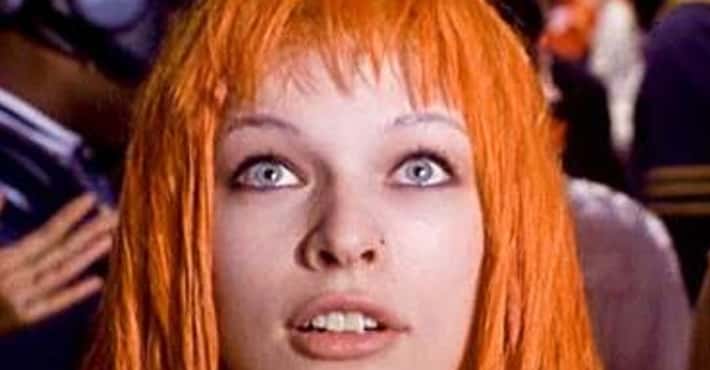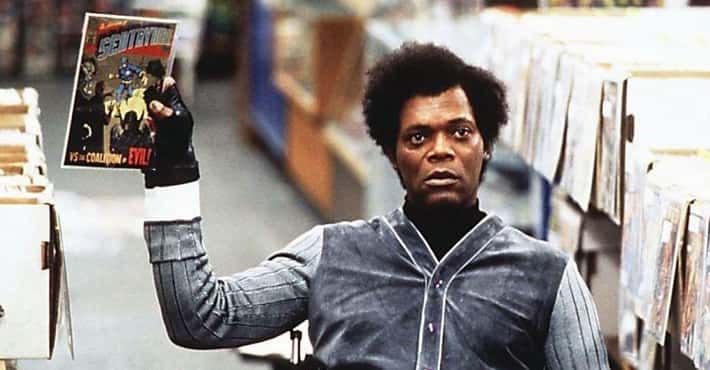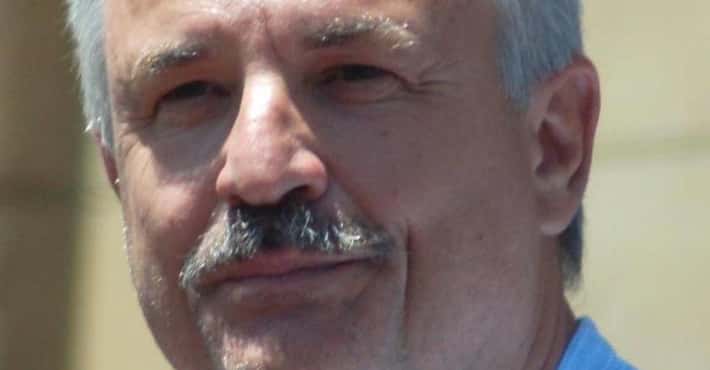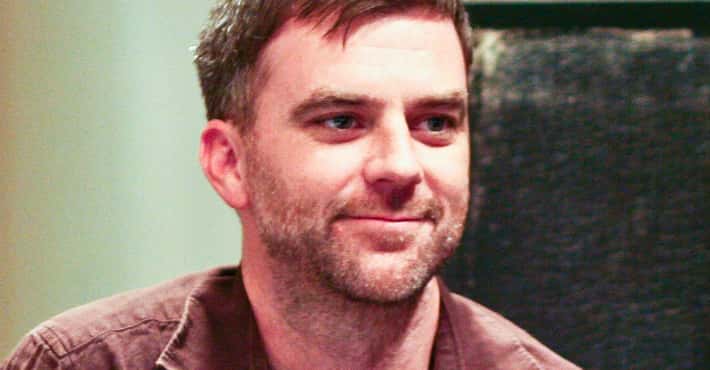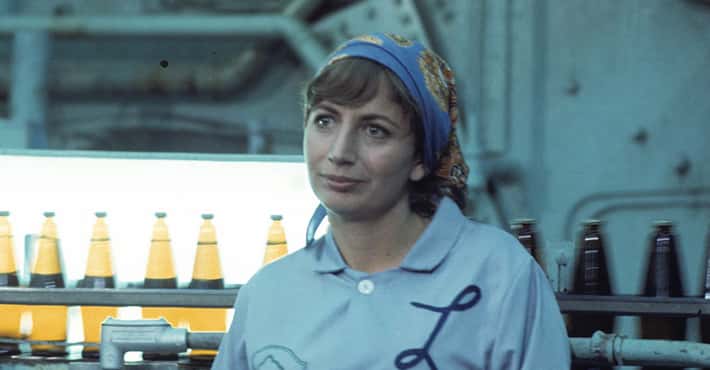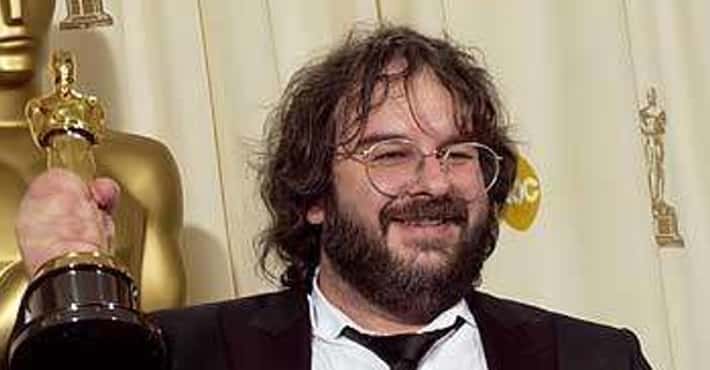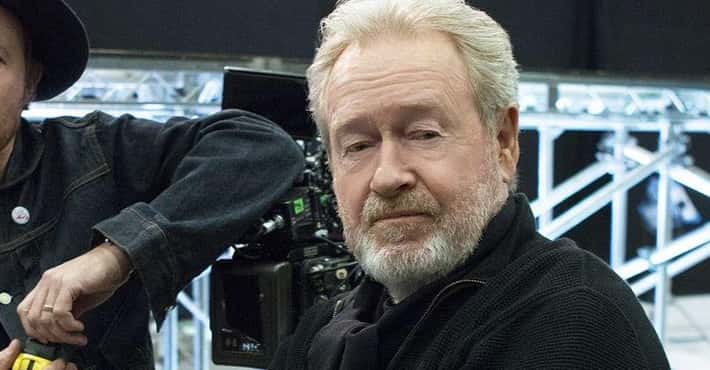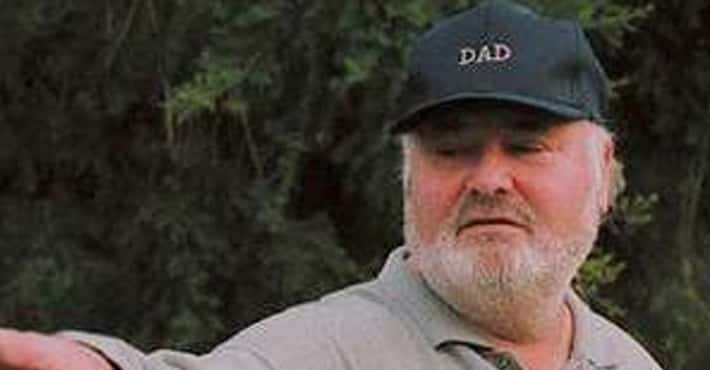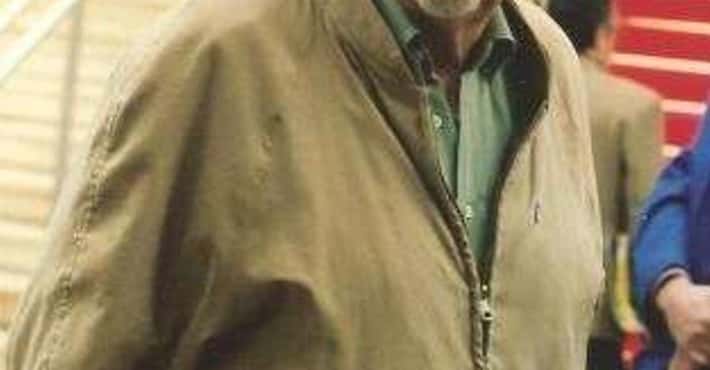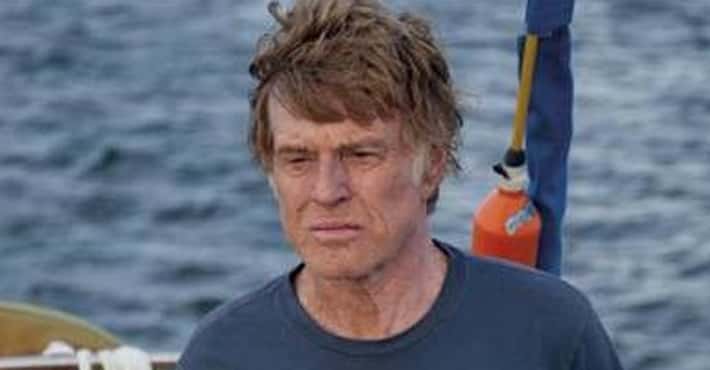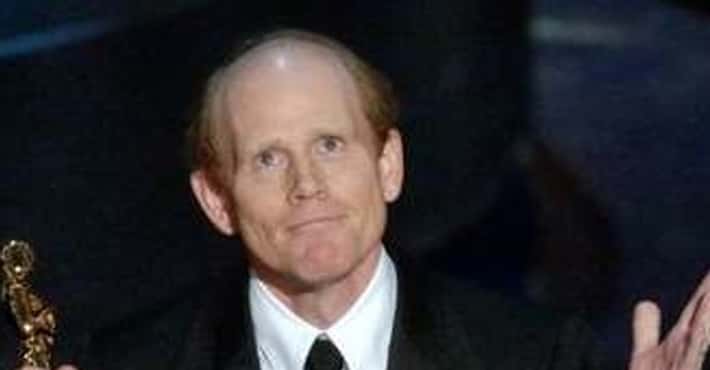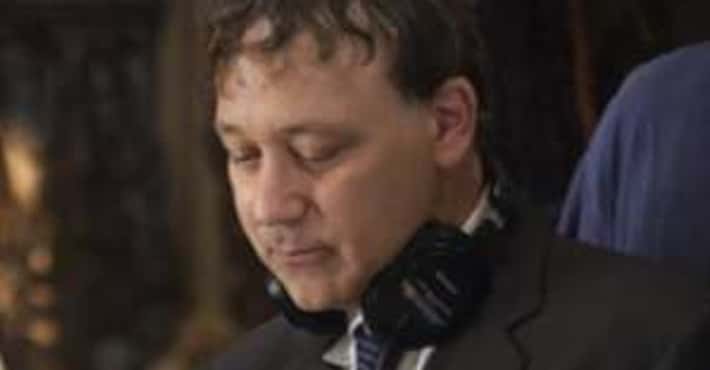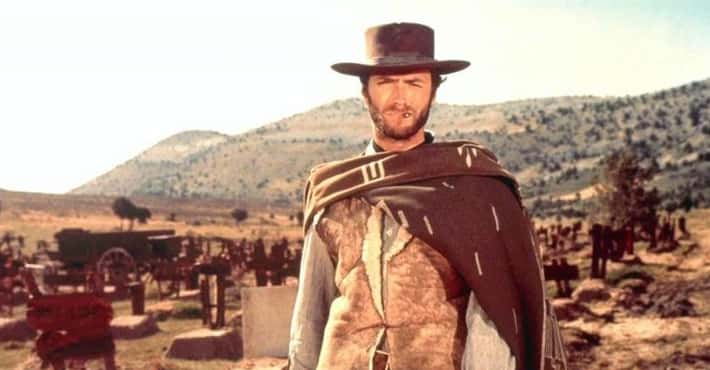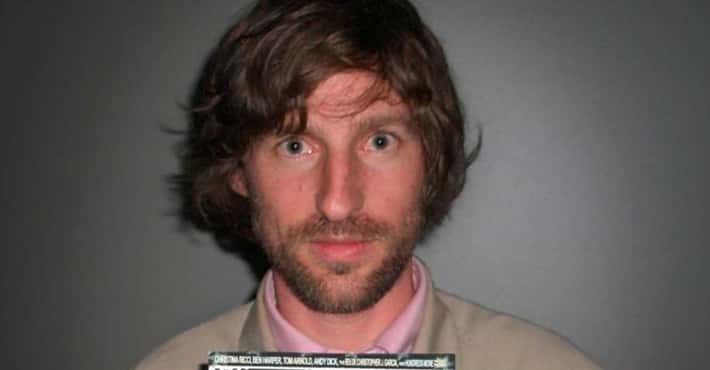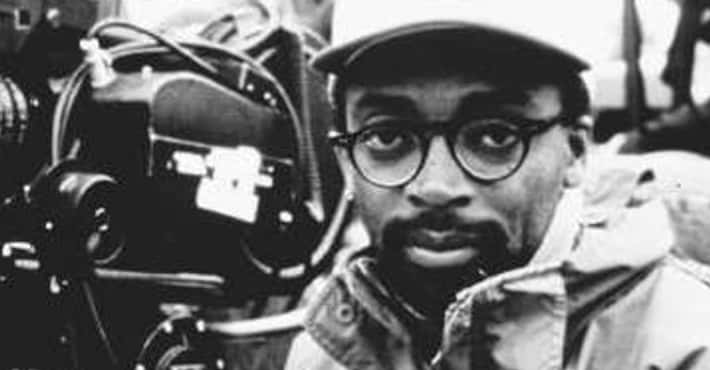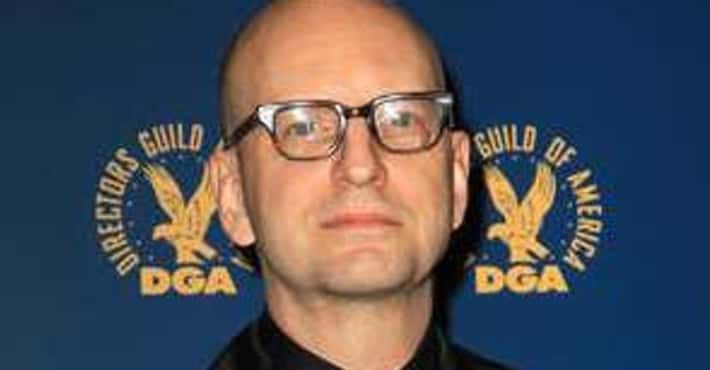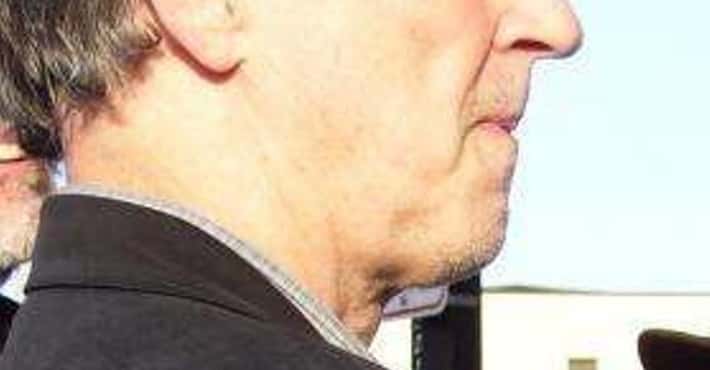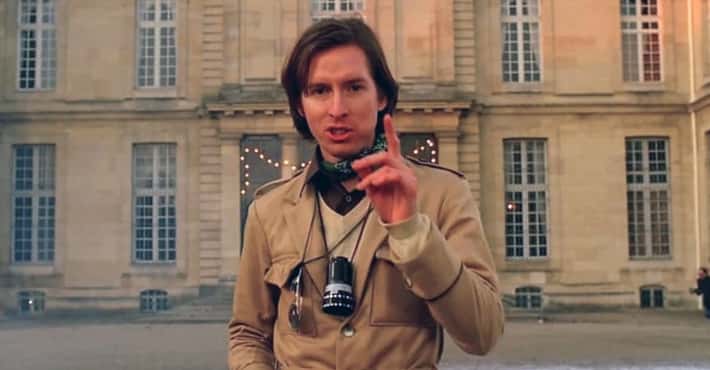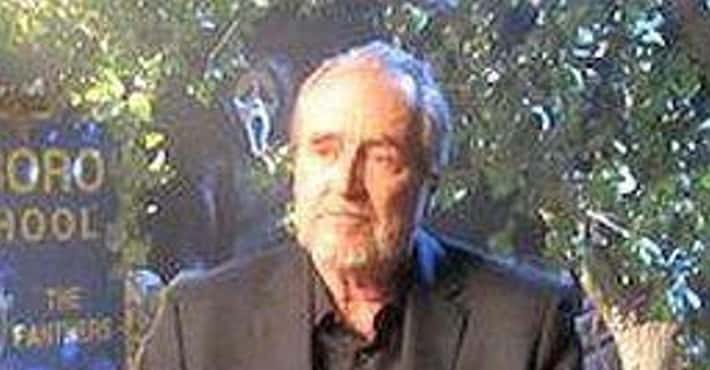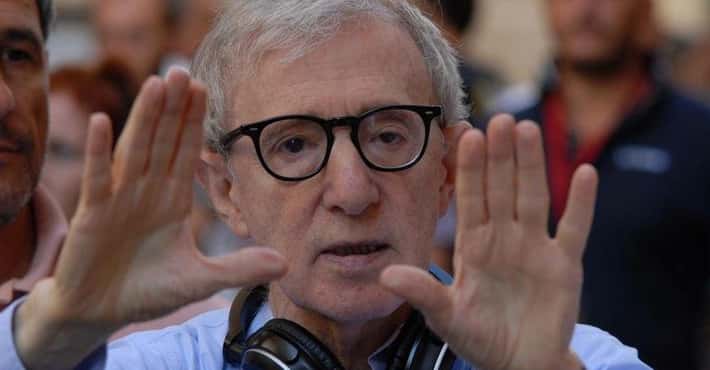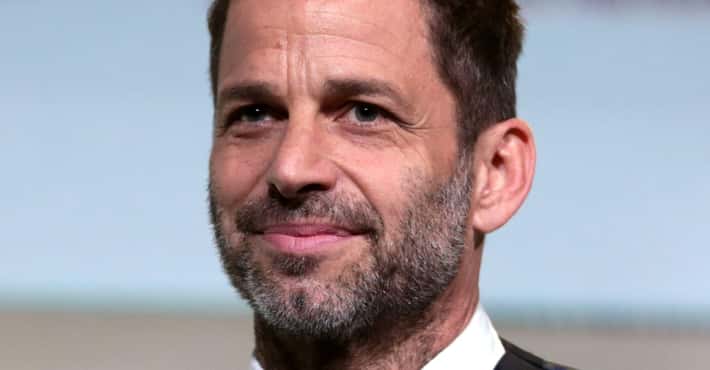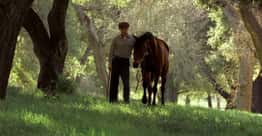Director Ingmar Bergman's Best Films, Ranked
Ranked By
2.4K votes
341 voters
 1Max von Sydow, Bibi Andersson, Gunnar BjörnstrandThe Seventh Seal is a 1957 Swedish drama-fantasy film written and directed by Ingmar Bergman. Set in Denmark it tells of the journey of a medieval knight and a game of chess, who has come to take his life. Bergman developed the film from his own play Wood Painting. The title refers to a passage from the Book of Revelation, used both at the very start of the film, and again towards the end, beginning with the words "And when the Lamb had opened the seventh seal, there was silence in heaven about the space of half an hour".More The Seventh Seal
1Max von Sydow, Bibi Andersson, Gunnar BjörnstrandThe Seventh Seal is a 1957 Swedish drama-fantasy film written and directed by Ingmar Bergman. Set in Denmark it tells of the journey of a medieval knight and a game of chess, who has come to take his life. Bergman developed the film from his own play Wood Painting. The title refers to a passage from the Book of Revelation, used both at the very start of the film, and again towards the end, beginning with the words "And when the Lamb had opened the seventh seal, there was silence in heaven about the space of half an hour".More The Seventh Seal- #147 of 252 onThe 200+ Best Psychological Thrillers Of All Time
- #204 of 675 onThe Best Movies Roger Ebert Gave Four Stars
- #158 of 191 onThe Best Movies For Men
 2Liv Ullmann, Bibi Andersson, Gunnar BjörnstrandPersona is a 1966 black and white Swedish film written and directed by Ingmar Bergman and starring Bibi Andersson and Liv Ullmann. Persona’s story revolves around a young nurse named Alma and her patient, a well-known stage actress named Elisabet Vogler, who has suddenly ceased to speak. Persona has been labelled a psychological drama and modernist horror and was subject to cuts due to the film’s controversial subject matter. It is the sixth collaboration between influential cinematographer Sven Nykvist and director Ingmar Bergman and features their trademark minimalism. As with Bergman’s other works, the film is shot and set in Sweden and deals with the themes of illness, bleakness, death and insanity. Persona is considered one of the major works of the 20th century by essayists and critics such as Susan Sontag who referred to it as Bergman's masterpiece. Other critics have described it as "one of this century’s great works of art". In the British Film Institute's 2012 Sight & Sound’s poll, Persona was ranked the 17th greatest film ever made in the critics' poll and 13th in the directors' poll.More Persona
2Liv Ullmann, Bibi Andersson, Gunnar BjörnstrandPersona is a 1966 black and white Swedish film written and directed by Ingmar Bergman and starring Bibi Andersson and Liv Ullmann. Persona’s story revolves around a young nurse named Alma and her patient, a well-known stage actress named Elisabet Vogler, who has suddenly ceased to speak. Persona has been labelled a psychological drama and modernist horror and was subject to cuts due to the film’s controversial subject matter. It is the sixth collaboration between influential cinematographer Sven Nykvist and director Ingmar Bergman and features their trademark minimalism. As with Bergman’s other works, the film is shot and set in Sweden and deals with the themes of illness, bleakness, death and insanity. Persona is considered one of the major works of the 20th century by essayists and critics such as Susan Sontag who referred to it as Bergman's masterpiece. Other critics have described it as "one of this century’s great works of art". In the British Film Institute's 2012 Sight & Sound’s poll, Persona was ranked the 17th greatest film ever made in the critics' poll and 13th in the directors' poll.More Persona- #233 of 252 onThe 200+ Best Psychological Thrillers Of All Time
- #134 of 167 onThe Greatest '60s Movies, Ranked
- #72 of 425 onThe Greatest Movies in World Cinema History
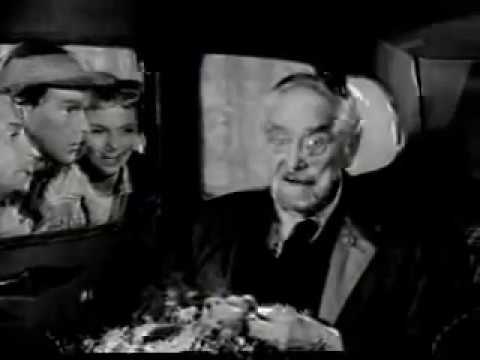 3Victor Sjöström, Ingrid Thulin, Bibi AnderssonCrotchety retired doctor Isak Borg (Victor Sjöström) travels from Stockholm to Lund, Sweden, with his pregnant and unhappy daughter-in-law, Marianne (Ingrid Thulin), in order to receive an honorary degree from his alma mater. Along the way, they encounter a series of hitchhikers, each of whom causes the elderly doctor to muse upon the pleasures and failures of his own life. These include the vivacious young Sara (Bibi Andersson), a dead ringer for the doctor's own first love.
3Victor Sjöström, Ingrid Thulin, Bibi AnderssonCrotchety retired doctor Isak Borg (Victor Sjöström) travels from Stockholm to Lund, Sweden, with his pregnant and unhappy daughter-in-law, Marianne (Ingrid Thulin), in order to receive an honorary degree from his alma mater. Along the way, they encounter a series of hitchhikers, each of whom causes the elderly doctor to muse upon the pleasures and failures of his own life. These include the vivacious young Sara (Bibi Andersson), a dead ringer for the doctor's own first love. 4Lena Olin, Peter Stormare, Erland JosephsonFanny and Alexander is a 1982 Swedish drama film written and directed by Ingmar Bergman. The plot focuses on two siblings and their large family in Uppsala, Sweden in the 1900s. It was originally conceived as a four-part TV movie and cut in that version, spanning 312 minutes; a 188-minute cut version was created later for cinematic release, although this version was in fact the one to be released first. The TV version has since been released as a one-part film, and both versions have been shown in theaters throughout the world. The 312-minute cut of the film ranks it among one of the longest cinematic films in history.More Fanny and Alexander
4Lena Olin, Peter Stormare, Erland JosephsonFanny and Alexander is a 1982 Swedish drama film written and directed by Ingmar Bergman. The plot focuses on two siblings and their large family in Uppsala, Sweden in the 1900s. It was originally conceived as a four-part TV movie and cut in that version, spanning 312 minutes; a 188-minute cut version was created later for cinematic release, although this version was in fact the one to be released first. The TV version has since been released as a one-part film, and both versions have been shown in theaters throughout the world. The 312-minute cut of the film ranks it among one of the longest cinematic films in history.More Fanny and Alexander- #397 of 399 onThe Best Movies Of The 1980s, Ranked
- #310 of 675 onThe Best Movies Roger Ebert Gave Four Stars
- #51 of 67 onThe Best Movies Of 1982
 5Max von Sydow, Ingrid Thulin, Allan EdwallWinter Light is a 1962 Swedish drama film written and directed by Ingmar Bergman and starring Bergman regulars Gunnar Björnstrand, Ingrid Thulin and Max von Sydow. The film follows Tomas Ericsson, pastor of a small rural Swedish church, as he deals with existential crisis and his Christianity. Bergman cited Winter Light as his favorite among his films. One of Ingmar's most intimate and autobiographical films, it deals harshly with personal elements of the director's life and worldview. Bergman claims that he only "realized who he really was" and came to terms with himself through the making of Winter Light. Vilgot Sjöman's film Ingmar Bergman Makes a Movie was made simultaneously with Winter Light and documents its production.
5Max von Sydow, Ingrid Thulin, Allan EdwallWinter Light is a 1962 Swedish drama film written and directed by Ingmar Bergman and starring Bergman regulars Gunnar Björnstrand, Ingrid Thulin and Max von Sydow. The film follows Tomas Ericsson, pastor of a small rural Swedish church, as he deals with existential crisis and his Christianity. Bergman cited Winter Light as his favorite among his films. One of Ingmar's most intimate and autobiographical films, it deals harshly with personal elements of the director's life and worldview. Bergman claims that he only "realized who he really was" and came to terms with himself through the making of Winter Light. Vilgot Sjöman's film Ingmar Bergman Makes a Movie was made simultaneously with Winter Light and documents its production. 6Max von Sydow, Harriet Andersson, Gunnar BjörnstrandThrough a Glass Darkly is a 1961 Swedish film written and directed by Ingmar Bergman, and produced by Allan Ekelund. The film is a three-act "chamber film," in which four family members act as mirrors for each other. It is the first of many Bergman films to be shot on the island of Fårö. Fårö is part of Gotland, the largest island in Sweden. The title is from a Biblical passage. The Swedish title literally means As in a Mirror which is how the passage reads in a 1917 Swedish translation of the Bible. Bergman described Through a Glass Darkly as a “chamber film,” an allusion both to the chamber plays of Strindberg and to chamber music in general. In line with the “chamber” theme, the film takes place in a single 24-hour period, features only four characters and takes place entirely on an island.
6Max von Sydow, Harriet Andersson, Gunnar BjörnstrandThrough a Glass Darkly is a 1961 Swedish film written and directed by Ingmar Bergman, and produced by Allan Ekelund. The film is a three-act "chamber film," in which four family members act as mirrors for each other. It is the first of many Bergman films to be shot on the island of Fårö. Fårö is part of Gotland, the largest island in Sweden. The title is from a Biblical passage. The Swedish title literally means As in a Mirror which is how the passage reads in a 1917 Swedish translation of the Bible. Bergman described Through a Glass Darkly as a “chamber film,” an allusion both to the chamber plays of Strindberg and to chamber music in general. In line with the “chamber” theme, the film takes place in a single 24-hour period, features only four characters and takes place entirely on an island. 7Liv Ullmann, Harriet Andersson, Ingrid ThulinAs Agnes (Harriet Andersson) slowly dies of cancer, her sisters are so deeply immersed in their own psychic pains that they can't offer her the support she needs. Maria (Liv Ullmann) is wracked with guilt at her husband's suicide, caused by his discovery of her extramarital affair. The self-loathing, suicidal Karin (Ingrid Thulin) seems to regard her sister with revulsion. Only Anna (Kari Sylwan), the deeply religious maid who lost her young child, seems able to offer Agnes solace and empathy.More Cries and Whispers
7Liv Ullmann, Harriet Andersson, Ingrid ThulinAs Agnes (Harriet Andersson) slowly dies of cancer, her sisters are so deeply immersed in their own psychic pains that they can't offer her the support she needs. Maria (Liv Ullmann) is wracked with guilt at her husband's suicide, caused by his discovery of her extramarital affair. The self-loathing, suicidal Karin (Ingrid Thulin) seems to regard her sister with revulsion. Only Anna (Kari Sylwan), the deeply religious maid who lost her young child, seems able to offer Agnes solace and empathy.More Cries and Whispers- #308 of 675 onThe Best Movies Roger Ebert Gave Four Stars
- #182 of 199 onThe Best Movies Of The '70s, Ranked
- #24 of 41 onThe 100+ Best Movies Streaming On The Criterion Channel
 8Ingrid Thulin, Gunnel Lindblom, Jörgen LindströmTraveling through an unnamed European country on the brink of war, sickly, intellectual Ester (Ingrid Thulin), her sister Anna (Gunnel Lindblom) and Anna's young son, Johan (Jorgen Lindstrom), check into a near-empty hotel. A basic inability to communicate among the three seems only to worsen during their stay. Anna provokes her sister by enjoying a dalliance with a local man, while the boy, left to himself, has a series of enigmatic encounters that heighten the growing air of isolation.
8Ingrid Thulin, Gunnel Lindblom, Jörgen LindströmTraveling through an unnamed European country on the brink of war, sickly, intellectual Ester (Ingrid Thulin), her sister Anna (Gunnel Lindblom) and Anna's young son, Johan (Jorgen Lindstrom), check into a near-empty hotel. A basic inability to communicate among the three seems only to worsen during their stay. Anna provokes her sister by enjoying a dalliance with a local man, while the boy, left to himself, has a series of enigmatic encounters that heighten the growing air of isolation. 9Max von Sydow, Allan Edwall, Tor IsedalThe Virgin Spring is a 1960 Swedish film directed by Ingmar Bergman. Set in medieval Sweden, it is a revenge tale about a father's merciless response to the rape and murder of his young daughter. The story was adapted by screenwriter Ulla Isaksson from a 13th-century Swedish ballad, "Töres döttrar i Wänge". The film contains a number of themes that question morals, justice and religious beliefs; it was considered controversial when first released due to its infamous rape scene. It won for Best Foreign Language Film at the 1961 Academy Awards and was also the basis for the 1972 exploitation horror film The Last House on the Left.More The Virgin Spring
9Max von Sydow, Allan Edwall, Tor IsedalThe Virgin Spring is a 1960 Swedish film directed by Ingmar Bergman. Set in medieval Sweden, it is a revenge tale about a father's merciless response to the rape and murder of his young daughter. The story was adapted by screenwriter Ulla Isaksson from a 13th-century Swedish ballad, "Töres döttrar i Wänge". The film contains a number of themes that question morals, justice and religious beliefs; it was considered controversial when first released due to its infamous rape scene. It won for Best Foreign Language Film at the 1961 Academy Awards and was also the basis for the 1972 exploitation horror film The Last House on the Left.More The Virgin Spring- #107 of 425 onThe Greatest Movies in World Cinema History
- #20 of 74 onThe Best Oscar-Winning Foreign Language Films
- #83 of 119 onThe 100+ Best Medieval Movies
 10Liv Ullmann, Max von Sydow, Gunnar BjörnstrandFormer musicians Jan Rosenberg (Max von Sydow) and his wife, Eva (Liv Ullmann), have left the city to avoid a civil war and now live on a rural island where they tend a farm. While the situation seems idyllic, the couple's isolation begins to wear on their relationship, and eventually the armed conflict that they've tried to flee arrives on the quiet island in the form of soldiers. Try as they might, Jan and Eva ultimately can't evade either the war or their own marital problems.
10Liv Ullmann, Max von Sydow, Gunnar BjörnstrandFormer musicians Jan Rosenberg (Max von Sydow) and his wife, Eva (Liv Ullmann), have left the city to avoid a civil war and now live on a rural island where they tend a farm. While the situation seems idyllic, the couple's isolation begins to wear on their relationship, and eventually the armed conflict that they've tried to flee arrives on the quiet island in the form of soldiers. Try as they might, Jan and Eva ultimately can't evade either the war or their own marital problems. 11Ingrid Bergman, Liv Ullmann, Lena NymanAfter a seven-year absence, Charlotte Andergast (Ingrid Bergman) travels to Sweden to reunite with her daughter Eva (Liv Ullmann). The pair have a troubled relationship: Charlotte sacrificed the responsibilities of motherhood for a career as a classical pianist. Over an emotional night, the pair reopen the wounds of the past. Charlotte gets another shock when she finds out that her mentally impaired daughter, Helena (Lena Nyman), is out of the asylum and living with Eva.
11Ingrid Bergman, Liv Ullmann, Lena NymanAfter a seven-year absence, Charlotte Andergast (Ingrid Bergman) travels to Sweden to reunite with her daughter Eva (Liv Ullmann). The pair have a troubled relationship: Charlotte sacrificed the responsibilities of motherhood for a career as a classical pianist. Over an emotional night, the pair reopen the wounds of the past. Charlotte gets another shock when she finds out that her mentally impaired daughter, Helena (Lena Nyman), is out of the asylum and living with Eva. 12Liv Ullmann, Erland Josephson, Bibi AnderssonJohan (Erland Josephson) and Marianne (Liv Ullmann) are married and seem to have it all. Their happiness, however, is a façade for a troubled relationship, which becomes even rockier when Johan admits that he's having an affair. Before long, the spouses separate and move towards finalizing their divorce, but they make attempts at reconciling. Even as they pursue other relationships, Johan and Marianne realize that they have a significant bond, but also many issues that hinder that connection.
12Liv Ullmann, Erland Josephson, Bibi AnderssonJohan (Erland Josephson) and Marianne (Liv Ullmann) are married and seem to have it all. Their happiness, however, is a façade for a troubled relationship, which becomes even rockier when Johan admits that he's having an affair. Before long, the spouses separate and move towards finalizing their divorce, but they make attempts at reconciling. Even as they pursue other relationships, Johan and Marianne realize that they have a significant bond, but also many issues that hinder that connection.- #382 of 675 onThe Best Movies Roger Ebert Gave Four Stars
- #194 of 199 onThe Best Movies Of The '70s, Ranked
- #12 of 145 onThe Best Foreign Romance Movies, Ranked
 13Liv Ullmann, Bibi Andersson, Max von SydowUnsettled by his recent divorce, Andreas Winkelman (Max von Sydow) lives on a remote Swedish island. When he meets the unhappy married couple Elis and Eva Vergerus (Erland Josephson, Bibi Andersson), Andreas begins a brief affair with Eva, which leads to a romantic involvement with their friend Anna Fromm (Liv Ullmann), who is grieving the loss of her family. As these relationships unfold, someone on the island is killing animals, lending the drama a mysterious backdrop.
13Liv Ullmann, Bibi Andersson, Max von SydowUnsettled by his recent divorce, Andreas Winkelman (Max von Sydow) lives on a remote Swedish island. When he meets the unhappy married couple Elis and Eva Vergerus (Erland Josephson, Bibi Andersson), Andreas begins a brief affair with Eva, which leads to a romantic involvement with their friend Anna Fromm (Liv Ullmann), who is grieving the loss of her family. As these relationships unfold, someone on the island is killing animals, lending the drama a mysterious backdrop. 14Liv Ullmann, Max von Sydow, Erland JosephsonOn a remote island, a troubled artist (Max von Sydow) feels his mind slipping away from him. Troubled by disturbing visions and paranoid delusions, he and his wife (Liv Ullmann) begin to suspect that the haunting memories are the machinations of a bizarre, perverted cult that reside on the other side of the island. The leader of this group (Erland Josephson) may hold the key to the artist's delusions. This is the only horror film in director Ingmar Bergman's legendary body of work.
14Liv Ullmann, Max von Sydow, Erland JosephsonOn a remote island, a troubled artist (Max von Sydow) feels his mind slipping away from him. Troubled by disturbing visions and paranoid delusions, he and his wife (Liv Ullmann) begin to suspect that the haunting memories are the machinations of a bizarre, perverted cult that reside on the other side of the island. The leader of this group (Erland Josephson) may hold the key to the artist's delusions. This is the only horror film in director Ingmar Bergman's legendary body of work. 15Max von Sydow, Ingrid Thulin, Gunnar BjörnstrandDr. Vogler (Max von Sydow) is a hypnotist, a magician and the leader of "Vogler's Magnetic Health Theater," a traveling performance troupe known for their apparently supernatural abilities. When Vogler's show arrives in Stockholm, the skeptical townspeople form a committee determined to disprove the supposedly magical abilities of the troupe. The locals, headed by a cruel medical official (Gunnar Björnstrand), fail to rationally explain Vogler's feats -- and events take a disturbing turn.More The Magician
15Max von Sydow, Ingrid Thulin, Gunnar BjörnstrandDr. Vogler (Max von Sydow) is a hypnotist, a magician and the leader of "Vogler's Magnetic Health Theater," a traveling performance troupe known for their apparently supernatural abilities. When Vogler's show arrives in Stockholm, the skeptical townspeople form a committee determined to disprove the supposedly magical abilities of the troupe. The locals, headed by a cruel medical official (Gunnar Björnstrand), fail to rationally explain Vogler's feats -- and events take a disturbing turn.More The Magician- #247 of 425 onThe Greatest Movies in World Cinema History
- #32 of 46 onThe Best Movies About Magic
- #52 of 52 onThe Top 50+ Films Released In 1959
 16Harriet Andersson, Sigge Fürst, Åke GrönbergSummer with Monika is a 1953 Swedish film directed by Ingmar Bergman. It sparked controversy abroad for its frank depiction of nudity and, along with the film One Summer of Happiness from the year before, directed by Arne Mattsson, it helped to create the reputation of Sweden as a sexually liberated place. The film made a star of its lead actress, Harriet Andersson. Bergman had been intimately involved with Andersson at the time and conceived the film as a vehicle for her. The two of them would continue to work together, even after their romantic relationship had ended, in films like Sawdust and Tinsel, Smiles of a Summer Night, Through a Glass Darkly, and Cries and Whispers.More Summer with Monika
16Harriet Andersson, Sigge Fürst, Åke GrönbergSummer with Monika is a 1953 Swedish film directed by Ingmar Bergman. It sparked controversy abroad for its frank depiction of nudity and, along with the film One Summer of Happiness from the year before, directed by Arne Mattsson, it helped to create the reputation of Sweden as a sexually liberated place. The film made a star of its lead actress, Harriet Andersson. Bergman had been intimately involved with Andersson at the time and conceived the film as a vehicle for her. The two of them would continue to work together, even after their romantic relationship had ended, in films like Sawdust and Tinsel, Smiles of a Summer Night, Through a Glass Darkly, and Cries and Whispers.More Summer with Monika- #28 of 37 onThe Best Beach Movies Ever Made, Ranked
- #88 of 145 onThe Best Foreign Romance Movies, Ranked
- #59 of 79 onThe Best Movies About Vacations
 17Ulla Jacobsson, Eva Dahlbeck, Harriet AnderssonEarly in the 20th century, middle-aged lawyer Fredrik Egerman (Gunnar Björnstrand) and his young wife, Anne (Ulla Jacobsson), have still not consummated their marriage, while Fredrik's son (Bjorn Bjelvenstam) finds himself increasingly attracted to his new stepmother. To make matters worse, Fredrik's old flame Desiree (Eva Dahlbeck) makes a public bet that she can seduce him at a romantic weekend retreat where four couples convene, swapping partners and pairing off in unexpected ways.
17Ulla Jacobsson, Eva Dahlbeck, Harriet AnderssonEarly in the 20th century, middle-aged lawyer Fredrik Egerman (Gunnar Björnstrand) and his young wife, Anne (Ulla Jacobsson), have still not consummated their marriage, while Fredrik's son (Bjorn Bjelvenstam) finds himself increasingly attracted to his new stepmother. To make matters worse, Fredrik's old flame Desiree (Eva Dahlbeck) makes a public bet that she can seduce him at a romantic weekend retreat where four couples convene, swapping partners and pairing off in unexpected ways. 18Liv Ullmann, Erland Josephson, Gunnar BjörnstrandDr. Jenny Isaksson (Liv Ullmann) is a psychiatrist whose temporary summer gig at a mental hospital offers only modest responsibilities. With her husband out of the country for a seminar and her daughter at camp, Jenny moves in with her grandparents, expecting a relaxing few months. But it isn't long before unpleasant memories of her childhood, the sudden appearance of strange apparitions and a near-rape push this otherwise stable woman to the very edge of sanity.
18Liv Ullmann, Erland Josephson, Gunnar BjörnstrandDr. Jenny Isaksson (Liv Ullmann) is a psychiatrist whose temporary summer gig at a mental hospital offers only modest responsibilities. With her husband out of the country for a seminar and her daughter at camp, Jenny moves in with her grandparents, expecting a relaxing few months. But it isn't long before unpleasant memories of her childhood, the sudden appearance of strange apparitions and a near-rape push this otherwise stable woman to the very edge of sanity. 19Ingmar Bergman, Håkan Hagegård, Ulrik ColdThe Magic Flute is Ingmar Bergman's 1975 film version of Mozart's opera Die Zauberflöte. It was intended as a television production and was first shown on Swedish television on 1 January 1975, but was followed by a cinema release later that year. The film was shown at the 1975 Cannes Film Festival, but was not entered into the main competition. The film is notable as the first made-for-television film with a stereo soundtrack.
19Ingmar Bergman, Håkan Hagegård, Ulrik ColdThe Magic Flute is Ingmar Bergman's 1975 film version of Mozart's opera Die Zauberflöte. It was intended as a television production and was first shown on Swedish television on 1 January 1975, but was followed by a cinema release later that year. The film was shown at the 1975 Cannes Film Festival, but was not entered into the main competition. The film is notable as the first made-for-television film with a stereo soundtrack. 20Alf Kjellin, Julia Cæsar, Annalisa EricsonSummer Interlude is a 1951 Swedish drama film co-written and directed by Ingmar Bergman. The film opened to highly positive reviews from critics.
20Alf Kjellin, Julia Cæsar, Annalisa EricsonSummer Interlude is a 1951 Swedish drama film co-written and directed by Ingmar Bergman. The film opened to highly positive reviews from critics. 21Harriet Andersson, Åke Grönberg, Anders EkIn this early Ingmar Bergman film, the Swedish director details the downward-spiraling lives of the members of a failing circus and their daily humiliations and degradations. The hapless clown Frost (Anders Ek) discovers his wife, Alma (Gudrun Brost), proudly skinny-dipping in front of a group of leering soldiers, while put-upon circus owner and ringmaster Albert (Åke Grönberg) undergoes torments from both his wife, Agda (Annika Tretow), and his mistress, Anne (Harriet Andersson).
21Harriet Andersson, Åke Grönberg, Anders EkIn this early Ingmar Bergman film, the Swedish director details the downward-spiraling lives of the members of a failing circus and their daily humiliations and degradations. The hapless clown Frost (Anders Ek) discovers his wife, Alma (Gudrun Brost), proudly skinny-dipping in front of a group of leering soldiers, while put-upon circus owner and ringmaster Albert (Åke Grönberg) undergoes torments from both his wife, Agda (Annika Tretow), and his mistress, Anne (Harriet Andersson). 22Martin Benrath, Heinz Bennent, Robert AtzornFrom the Life of the Marionettes is a 1980 film directed by Ingmar Bergman. The film was produced in West Germany with a German language screenplay and soundtrack while Bergman was in "tax exile" from his native Sweden. It is filmed in black and white apart from two colour sequences at the beginning and end of the movie. It is set in Munich. The title is a quotation excerpted from a passage in The Adventures of Pinocchio by Carlo Collodi: "Most unfortunately in the lives of the Marionettes there is always a BUT that spoils everything". Unlike Collodi's story, however, Bergman's is unremittingly bleak in tone. The film charts the disintegration of the relationship of Katarina and Peter Egermann, the feuding couple seen briefly in Bergman's earlier Scenes From a Marriage. As Katarina seeks other lovers, the emotionally repressed and despondent Peter descends into neuroses, eventually leading him to tearfully murder a prostitute, with the same name as his wife, at a Munich peep show before sodomising her dead body. In the closing sequence he is incarcerated in a mental asylum.
22Martin Benrath, Heinz Bennent, Robert AtzornFrom the Life of the Marionettes is a 1980 film directed by Ingmar Bergman. The film was produced in West Germany with a German language screenplay and soundtrack while Bergman was in "tax exile" from his native Sweden. It is filmed in black and white apart from two colour sequences at the beginning and end of the movie. It is set in Munich. The title is a quotation excerpted from a passage in The Adventures of Pinocchio by Carlo Collodi: "Most unfortunately in the lives of the Marionettes there is always a BUT that spoils everything". Unlike Collodi's story, however, Bergman's is unremittingly bleak in tone. The film charts the disintegration of the relationship of Katarina and Peter Egermann, the feuding couple seen briefly in Bergman's earlier Scenes From a Marriage. As Katarina seeks other lovers, the emotionally repressed and despondent Peter descends into neuroses, eventually leading him to tearfully murder a prostitute, with the same name as his wife, at a Munich peep show before sodomising her dead body. In the closing sequence he is incarcerated in a mental asylum. 23Erland Josephson, Liv Ullmann, Börje AhlstedtFollowing Johan (Erland Josephson) and Marianne (Liv Ullmann) 30 years after the events of "Scenes from a Marriage," this sequel finds the couple long since divorced and remarried. After Johan separates from his second wife, and Marianne loses her second husband, the ex-lovers try to reconnect. Meanwhile, Johan's son, Henrik (Börje Ahlstedt), is having problems of his own with his daughter, Karin (Julia Dufvenius), a cellist whose career plans don't match her father's expectations.
23Erland Josephson, Liv Ullmann, Börje AhlstedtFollowing Johan (Erland Josephson) and Marianne (Liv Ullmann) 30 years after the events of "Scenes from a Marriage," this sequel finds the couple long since divorced and remarried. After Johan separates from his second wife, and Marianne loses her second husband, the ex-lovers try to reconnect. Meanwhile, Johan's son, Henrik (Börje Ahlstedt), is having problems of his own with his daughter, Karin (Julia Dufvenius), a cellist whose career plans don't match her father's expectations. 24Bibi Andersson, Jarl Kulle, Allan EdwallThe Devil's Eye is a 1960 Swedish fantasy-comedy film written and directed by Ingmar Bergman.
24Bibi Andersson, Jarl Kulle, Allan EdwallThe Devil's Eye is a 1960 Swedish fantasy-comedy film written and directed by Ingmar Bergman. 25Max von Sydow, Bibi Andersson, Erland JosephsonBrink of Life, is a 1958 Swedish drama film directed by Ingmar Bergman. Bergman won the Best Director Award and Anderson, Dahlbeck, Ornäs and Thulin won the Best Actress Award at the 1958 Cannes Film Festival.
25Max von Sydow, Bibi Andersson, Erland JosephsonBrink of Life, is a 1958 Swedish drama film directed by Ingmar Bergman. Bergman won the Best Director Award and Anderson, Dahlbeck, Ornäs and Thulin won the Best Actress Award at the 1958 Cannes Film Festival. 26Julia Cæsar, Stig Olin, Anna-Lisa BaudeCrisis is a 1946 Swedish film directed by Ingmar Bergman. The film was Bergman's first feature as director and he also wrote the screenplay, based on the Danish radio play Moderhjertet by Leck Fischer. The story follows a young girl living a quiet life in a small town with her foster mother. Nelly is an innocent 18 year old becoming increasingly aware of the effect that her beauty has on the men of her little Swedish village. Ingeborg is a respectably dour woman who teaches piano to village youth and has undoubtedly sacrificed much for the sake of her foster daughter. As Nelly is on the verge of womanhood and Ingeborg is in failing health, Miss Jenny returns in her fancy hat, painted nails and trampy air of sophistication, to take her long-abandoned daughter away with her to sample the indulgent fruits of urban life. Jenny has had a rough past, involving prostitution and other scandals, but now owns a beauty salon that’s afforded her a few comforts in life, material and otherwise. Among them is a dapper mustachioed gentleman acquaintance named Jack, who follows Jenny to the village as an uninvited guest.
26Julia Cæsar, Stig Olin, Anna-Lisa BaudeCrisis is a 1946 Swedish film directed by Ingmar Bergman. The film was Bergman's first feature as director and he also wrote the screenplay, based on the Danish radio play Moderhjertet by Leck Fischer. The story follows a young girl living a quiet life in a small town with her foster mother. Nelly is an innocent 18 year old becoming increasingly aware of the effect that her beauty has on the men of her little Swedish village. Ingeborg is a respectably dour woman who teaches piano to village youth and has undoubtedly sacrificed much for the sake of her foster daughter. As Nelly is on the verge of womanhood and Ingeborg is in failing health, Miss Jenny returns in her fancy hat, painted nails and trampy air of sophistication, to take her long-abandoned daughter away with her to sample the indulgent fruits of urban life. Jenny has had a rough past, involving prostitution and other scandals, but now owns a beauty salon that’s afforded her a few comforts in life, material and otherwise. Among them is a dapper mustachioed gentleman acquaintance named Jack, who follows Jenny to the village as an uninvited guest. 27Ingrid Thulin, Anders Ek, Gunnar BjörnstrandActors Thea (Ingrid Thulin), Sebastian (Anders Ek) and Hans (Gunnar Björnstrand) are sequestered in the offices of Judge Abrahamson (Erik Hell), who questions them about the play they have been performing, which has been accused of being obscene. As the judge interviews them separately and together, the three performers work through their considerable psycho-sexual baggage with each other, while collectively laying siege to the sensibilities of their authoritarian interrogator.
27Ingrid Thulin, Anders Ek, Gunnar BjörnstrandActors Thea (Ingrid Thulin), Sebastian (Anders Ek) and Hans (Gunnar Björnstrand) are sequestered in the offices of Judge Abrahamson (Erik Hell), who questions them about the play they have been performing, which has been accused of being obscene. As the judge interviews them separately and together, the three performers work through their considerable psycho-sexual baggage with each other, while collectively laying siege to the sensibilities of their authoritarian interrogator. 28Harriet Andersson, Eva Dahlbeck, Gunnar BjörnstrandSusanne (Eva Dahlbeck) is a woman in her mid-30s and the owner of a modeling agency in Stockholm. She accompanies her prize model, Doris (Harriet Andersson), on a trip to Gothenburg so that Doris can be photographed. While traveling, both women seek out romance, Susanne with a married lover and Doris with an older gentleman who sees his deceased wife in the young model. The two women struggle to understand their romantic motivations and in the process form an unlikely friendship.
28Harriet Andersson, Eva Dahlbeck, Gunnar BjörnstrandSusanne (Eva Dahlbeck) is a woman in her mid-30s and the owner of a modeling agency in Stockholm. She accompanies her prize model, Doris (Harriet Andersson), on a trip to Gothenburg so that Doris can be photographed. While traveling, both women seek out romance, Susanne with a married lover and Doris with an older gentleman who sees his deceased wife in the young model. The two women struggle to understand their romantic motivations and in the process form an unlikely friendship. 29Lena Olin, Erland Josephson, Ingrid ThulinAfter the Rehearsal is a television film, written and directed by Ingmar Bergman in 1984. The script contains numerous quotes from Strindberg's Drömspel. The film was screened out of competition at the 1984 Cannes Film Festival.
29Lena Olin, Erland Josephson, Ingrid ThulinAfter the Rehearsal is a television film, written and directed by Ingmar Bergman in 1984. The script contains numerous quotes from Strindberg's Drömspel. The film was screened out of competition at the 1984 Cannes Film Festival. 30Ingmar Bergman, Eva Dahlbeck, Harriet AnderssonA Lesson in Love is a 1954 Swedish comedy film directed by Ingmar Bergman. The film is about the marriage of a gynecologist named David and his wife Marianne. The film's score was composed by Dag Wirén.
30Ingmar Bergman, Eva Dahlbeck, Harriet AnderssonA Lesson in Love is a 1954 Swedish comedy film directed by Ingmar Bergman. The film is about the marriage of a gynecologist named David and his wife Marianne. The film's score was composed by Dag Wirén.


